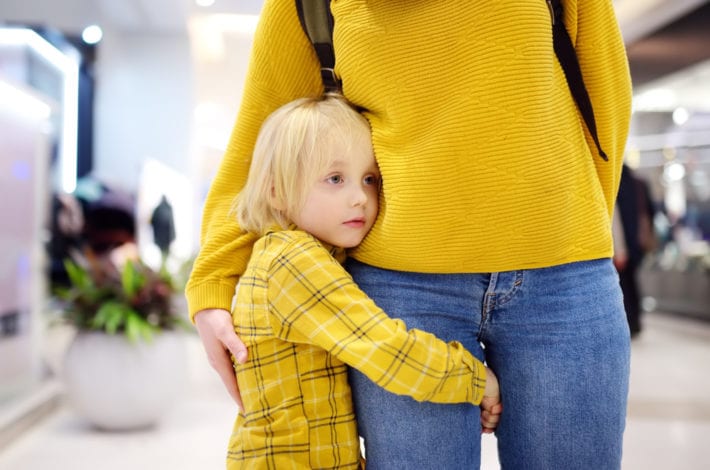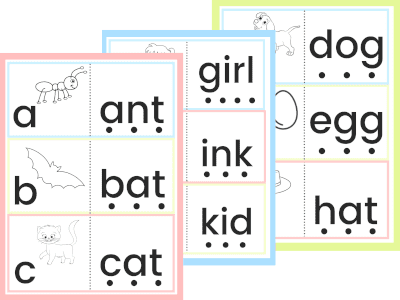

Toddler biting can be a huge concern for any parent. No one wants their child to hurt another and biting can produce some pretty big emotions, not least from the parents of the child your toddler hurts.
If your toddler bites another child it can be shocking and disturbing and it can make you worry that they will do it again. You can end up becoming nervous whenever they around other children.
If your child is a biter, you can also begin to question whether you yourself are to blame for their anti-social behaviour.
How common is biting?
Biting is a common behaviour in toddlers. Anecdotally, experts believe that as many as a quarter of all toddlers will bite others at some stage. It’s a normal part of childhood and a way for small children to test their boundaries and express their feelings.
Biting usually happens between the ages of one and three. It is thought to be slightly more common in boys than girls.
Boys are known to be more physical than girls and are also thought to be typically slower to develop speech than girls. This means that they are more likely resort to physical actions to express emotions, when they don’t have the words to say how they are feeling.
Whether it happens in boys or in girls, toddler biting is a phase that will pass. As they gain more language skills, the biting lessens. Most children grow out of it by age 4. However, knowing it’s a phase doesn’t make it any easier when your child is going through it.
It can help to understand what drives toddlers to bite and get into their mindset. Understanding why they do it can help you empathise with your toddler and see the biting as a direct response to stress or frustration.
Of course, you will always then need to take action to nip this behaviour in the bud. But understanding what goes on in your toddler’s mind can help you as a parent a lot.
Actions speak louder when you don’t have words
Toddlers don’t yet have the language skills to explain how they are feeling. At this stage in life they feel some pretty big emotions, which they don’t know how to handle.
If they’re feeling anxious they might not have the words to tell you. If they’re feeling cross they might not have the language to explain what is upsetting them.
Without enough words they rely on actions instead. In the heat of the moment when their emotions bubble over and they can’t express their feeling in words this can mean they lash out and bite.
If a bite gets a strong reaction then they are more likely to do it again. Toddlers thrive on attention and easily repeat behaviours that get it for them.
Wanting to be seen and noticed


Toddlers want the attention of their mum and dad more than anything. When mum and dad are not there and they are being looked after by others they equally want to be noticed.
But parents, nursery staff and babysitters can get busy and be distracted.
Life is busy – there are chores to do, other children to look after and a million and one things that crop up to take our attention away from the immediate needs of our toddlers.
But toddlers live in the here and now. If they want your attention they want it now. And waiting is hard.
Tensions can build and boil over to reach melting point. Sometimes that can mean they resort to physical actions that get a huge response – such as biting.
When toddlers bite mum or dad comes running
Toddlers rarely mean to hurt another when they bite. They actually are too young to understand the pain they are causing.
Whatever the lead up to the bite, it provokes a strong reaction. Lyn Fry, an educational psychologist says:
You must ask yourself what the child is achieving by biting. Think what the reward is for him or her – does he get a huge amount of attention?
Fry believes that it is useful for parents to see biting as a form of communication rather than just bad behaviour.
They should look at who they bite, when they bite and in what situations. They can then identify the triggers for biting and have more choice in how to respond.
The 8 types of toddler biters:
The experimental biter
Babies and toddlers explore the world around then by placing things in their mouths. They chew on things to find out more about them. The problem is when they decide to experiment with chomping down on your arm or neck.
It hurts. And is shocking.
Sometimes toddlers are exploring the idea of cause and effect. They are used to biting things and can explore what will happen if they bite mum or dad.
If they get a pretty strong reaction they might want to do it again for more attention.
The social biter
Toddler explore things with their mouths and sometimes can make this move to get close to their peers.
Because they lack words to say ‘Hi, will you play with me?’ they can use their mouths and bite instead.
They are making physical contact to connect but, of course, the other child gets hurt and reacts and so their social contact misfires.
The overwhelmed biter
Sometimes a toddler can be overwhelmed by too much going on around them, including noise, sounds and lights.
Your toddler can then be overstimulated and not know how to behave.


The frustrated biter
It’s hard to be a toddler. It’s hard to share and it’s hard to understand what another child is feeling.
When your toddler wants a toy that another child has they can get frustrated. When they want something to happen NOW right now they can get cross. And, in anger, they can lash out by biting.
The threatened biter
If your child feels very anxious or nervous in a new situation and doesn’t have the words to express their fears so you can calm them or remove them from the situation, they can resort to biting to keep other children away.
It’s a successful tactic in one respect. But, of course, it’s not the best way to make other toddlers back off. Despite that it works and that’s why toddlers can repeat the biting.
The power biter
Biting is a way for some toddlers to assert control over their world and get attention. It’s a quick and easy way to get control of a situation.
Toddlers soak up attention and even if it is negative attention can thrive on the power it gives them. Toddlers quickly learn that when they bite mum or dad come running.
The teething biter
Every parent knows that when those pearly whites start to push through your toddler’s gums they instinctively chew and chomp down on anything they can to try to alleviate the pain.
And that can include biting your arm or shoulder or neck as they try to get relief.


The affectionate biter
It seems a bit extreme to us as adults but sometimes, for toddlers, a bite is just an inch away from a kiss. Toddlers can chomp down on their mums or dads to show love.
They want to connect physically and immediately. When toddlers are very excited they can nip their parents with their teeth.
A toddler who bites is NOT a monster
Experts remind parents that biting is a common behaviour in toddlers and it does not mean that your child has more serious issues.
If toddler biting is dealt with using a clear, calm and consistent approach, it can soon pass. Jennifer Kolari, a child and parent therapist in Toronto, reassures us by saying:
It doesn’t mean your child is a monster who’ll grow up to have other behavioural problems.






